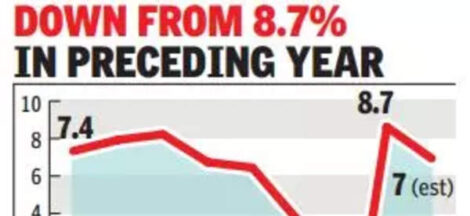Dr
Arun Mitra
The
issue of cheap drugs and their quality has always been a cause of concern. With
more than 40 percent of our population living below poverty line, if a patient
needs medicines he or she has to pay more than half of her/his earning. As per
the trends in catastrophic health expenditure in India: 1993 to 2014, published
in the Bulletin of WHO 2018, out of pocket expenditure on health in India is
catastrophic. The catastrophic health expenditure is defined as ‘out-of-pocket
payments on health equalling or exceeding 10 percent of total household
expenditure and 40 percent of the household’s capacity to pay’. The proportion
of households experiencing catastrophic health expenditure increased in the
last 20 years, and the increase was greater for the poor than the rich.
As
per the National Sample Survey on healthcare in 2014, ‘medicines emerged as a
principal component of total health expenses — 72 percent in rural areas and 68
percent in urban areas’. It is, therefore, pertinent that their prices be
regulated effectively and quality control ensured.
Drugs
in our country are sold in two forms. First come the branded drugs, which are
promoted by the manufacturers and given specific trade name by the company.
Since their cost involves several promotional expenses, their price is higher.
At least 90 percent of the Indian domestic pharmaceutical market of Rs 1,00,000
crore and more comprises drugs sold under brand names.
The
concept of generic drugs was evolved to cut down this excess cost involved in
packaging and other promotional means. The Indian government began encouraging
more drug manufacturing by Indian companies in the early 1960s. Public sector
pharmaceutical units played a vital role in this. A generic drug is sold under
pharmaceutical/chemical name and has equal efficacy to the branded drugs. These
are marketed under the chemical/pharmacological name without advertising.
However, here too, companies started manufacturing them under brand names.
These are termed branded generic drugs, which are being sold not under
pharmacological name but under a different brand name even though produced by a
company which is involved in manufacturing and promoting branded drugs.
To
facilitate the use of generic drugs the government of India has set up Jan
Aushadhis, which sell only generic name medicines. There are not enough Jan
Aushadhis, possibly less than 3,000 against more than eight lakh retail outlets
selling branded drugs.
Through
the Indian pharma’s field force numbering nearly one million medical
representatives, there has developed trust among the doctors and also the
patients in the companies and their brands. For similar trust to develop on the
generic drugs there is need for perceptible quality assurance. Otherwise the
use of generic drugs is unlikely to increase.
With
value of worth US $20 billion, the pharma sector in India is doing better than
many other sectors and still continues to be the major source of supply of
cheap bulk drugs globally even to some of the developed countries.
But
there are also reports of low quality medicines. Spurious/falsely-labelled/falsified/counterfeit
(SFFC) drugs can cause treatment failure or even death. This is unacceptable. A
working paper published through the U.S. National Bureau of Economic Research
gave details of the results of an extensive investigation into Indian
pharmaceutical quality. Around 1,500 India-made drug samples were collected
from 22 cities throughout Africa and it was found that ‘10 percent of the
antibiotic and anti-tuberculosis samples contained insufficient levels of the
key active ingredients’. Most of those drugs were not counterfeit; they are
legally made by legitimate companies. They contain some therapeutic elements,
but probably not enough active ingredients to actually treat disease’.
There
have been cases of default by some of the leading companies. ‘Ranbaxy was found
guilty in a US court in May 2013 and had to pay over half a billion dollars in
fines and settlements. In 2012, Ranbaxy was forced to recall millions worth of
drugs after glass particles were found mixed with the raw ingredients used for
its generic version of Lipitor. Dr. Reddy’s Laboratories had to recall about
58,000 bottles of an ulcer medication because some of the pills were found to be
contaminated’. According to Central Drugs Standard Control Organization (CDSCO)
estimation, during 2003-2008, 6.3-7.5 percent of the samples were of
substandard quality and 0.16-0.35 percent were encountered as spurious.
Such
reports reduce confidence among the health providers and patients on drugs,
more so on generic drugs. It may be noted that there is powerful propaganda
against the generic drugs by the companies selling branded drugs. This
propaganda also impacts the patients who invariably ask for the branded drugs
from multinational companies. This can be countered through strict quality
control on all drugs, particularly the generic drugs. Their trade margins have
to be regulated. To enforce the regulations there should be surprise check of
samples collected from the market. The CDSCO has to play a vital role in this.
People’s confidence has to be built through public awareness and effective
standardization of drug quality. More public sector pharmaceutical units should
be opened as it is easier to exercise quality control on them. (IPA Service)
The post Promote Generic Drugs With Effective Quality Control appeared first on Newspack by India Press Agency.


